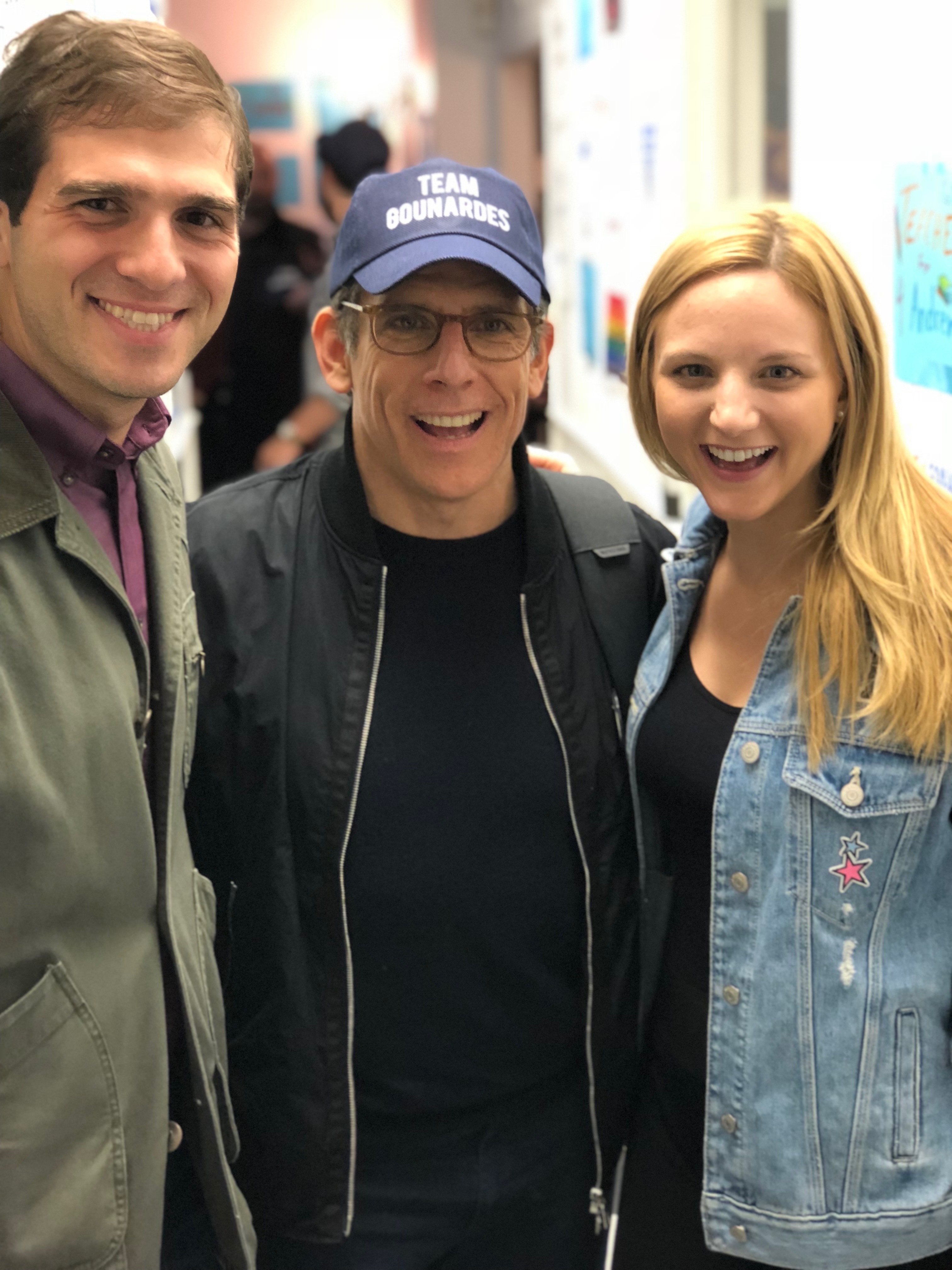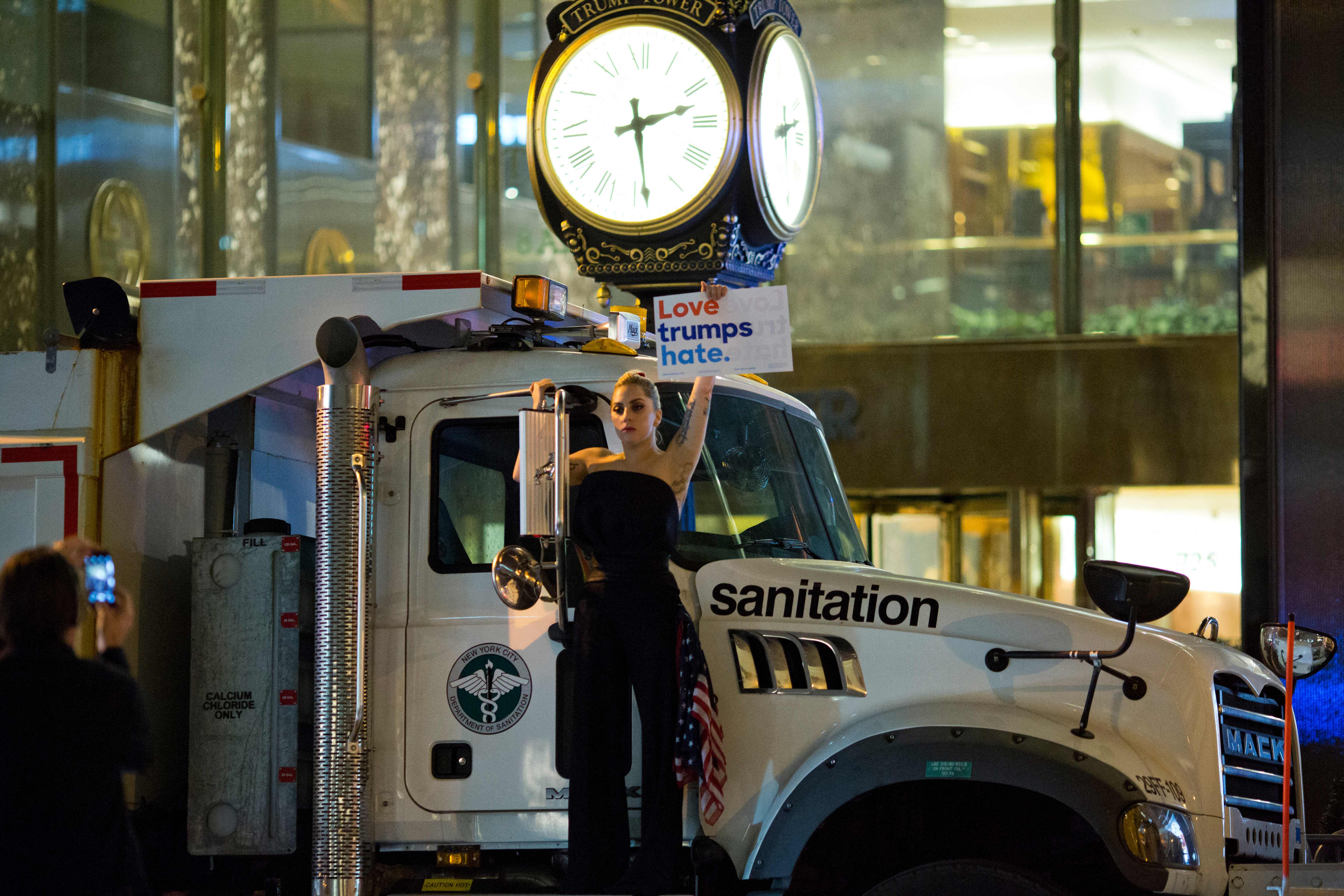You see them in Albany, hear their voices in campaign ads. They might even be knocking on your door to encourage you to vote.
The rich, talented and beautiful stars that we love to love (and sometimes love to hate) are all over New York politics. At times, their interest in local issues like the ouster of the head of New York City Transit can be surprising, bordering on incongruous. Who knew Sarah Jessica Parker was such an Andy Byford fan?
But celebs’ interest in New York and the people who run it shouldn’t be all that surprising. Many A-list stars are also New York residents, even if a likely smaller fraction are regular straphangers. And on some issues, they’re particularly well-positioned advocates. An actor at risk of having their digital likeness replicated for profit by a film studio could offer compelling testimony to the importance of artificial intelligence regulations. And who better than artists who grew up witnessing the effect of the Rockefeller drug laws on Black and Latino neighborhoods to declare the war on drugs an “epic fail”?
But what good does star power really do for political causes in the end? City & State spoke to some strategists and lawmakers who have worked with celebrities on electoral and legislative campaigns about the advantages and potential pitfalls of running down the A-, B- and C-list for political partners.

When star power equals political power
It’s a gray Monday in southern Brooklyn, and a relatively unknown state Senate candidate named Andrew Gounardes comes knocking on your door. You may not want to hear him out. But let’s say actor Ben Stiller – decked out in Gounardes campaign swag – is standing on your stoop alongside the candidate. Chances are Zoolander himself will at least pique your curiosity.
“So much of what we do is trying to get the public’s attention onto things we’re working on,” said state Sen. Michael Gianaris. “And obviously celebrities, by virtue of their status, are able to accomplish that.” After his victory, Gounardes said Stiller’s stumping – and the support of his nonfamous endorsers – helped amplify his campaign’s message.
Lawmakers and strategists are understandably hesitant to attribute the victory – or defeat – of a political campaign or advocacy fight to the famous people who spoke up about it or got involved. But when campaigns and advocacy groups are strategic about going after or accepting celebrity support – and find a staunch, genuine advocate – they might be able to move the needle. When Lady Gaga interrupted her Buffalo concert to tell her “little monsters” to call Republican state Sen. Mark Grisanti and urge him to support the same-sex marriage bill in Albany, his office was flooded with phone calls the next day, City & State previously reported. Grisanti ended up being one of the deciding votes that passed the bill.
Celebrities were all over the same-sex marriage fight in Albany in 2011, but with limited resources, advocates went after endorsers who would be able to change hearts and minds on what was then still a controversial issue. Brian Ellner, who at the time served as the senior strategist for New York marriage at the Human Rights Campaign, said that their New Yorkers for Marriage Equality Campaign was intentional. Once actress Julianne Moore got involved, it wasn’t difficult to get others on board. But they weren’t just looking for liberal Hollywood stars, and actually ended up turning some people down. “We wanted to go after so-called unusual suspects,” he recalled of bringing Wall Street types, former NYPD Commissioner Bill Bratton, and professional athletes – another kind of celebrity – on board in order to reach people consuming all kinds of media and with a diverse range of interests. “If you’re a sports fan, and that’s all you’re reading and consuming, you’re going to hear from us,” Ellner said. “We’re going to interrupt your sports coverage because Michael Strahan and Sean Avery are coming out in support.”
While celebrity endorsements in political campaigns are often there to get the attention of and win over voters, getting a little extra sheen on an issue can also be useful for lawmakers to cut through the noise with their colleagues. That’s especially true in the scramble of the last weeks of the session. “In these final weeks, you’ll see – it’s all hands on deck, and everyone’s fighting for their priorities,” said state Sen. Brad Hoylman-Sigal. “Bills can slip out of your hands unless there’s a push from an advocacy organization, a notable New Yorker, colleagues. But it requires a special concoction, and sometimes that star dust of celebrity can bring it to fruition.”
Other times, when a bill is stalling, celebrities can be used to fill the space and divert attention from any “doomsday reporting,” as was the case toward the end of the same-sex marriage fight. “Instead, we would have ‘Fran Drescher for marriage equality, and everyone supports it!’” Ellner said. “We actually had a few of the celebrities come up to Albany during that week, just to shake hands to create that sort of sense of momentum and excitement.”
Sometimes, a celebrity’s endorsement is just that – a name and face on a campaign mailer or press release. That on its own can be powerful, especially when it comes to fundraising. While celebrities can and often do donate to political candidates individually, hosting a big, splashy fundraiser – especially as the “chair” of the event – can actually lead to material gain. “Once you have that name, then you get to charge more money,” said political consultant Lupe Todd-Medina. “What was once a $250 event becomes a $1,000 or $2,000 (event) because we got that name.” If the celebrity actually shows up, that’s gravy, Todd-Medina said.
But the most successful celebrity endorsements and activism usually come with a personal connection that lets voters and other lawmakers know the celebrity isn’t just in it for the Good Samaritan publicity. Hoylman-Sigal and Gianaris both offered the example of actress Emma Stone traveling to Albany to speak to lawmakers – and indulge a lot of selfies – while advocating for a child harassment bill sponsored by Hoylman-Sigal (that has not passed). “When they walk into a room, as Emma Stone did – and shared her personal experiences about being hounded by paparazzi and the personal impact it had on her and her young family, it really is quite moving,” he said.

All that glitters
When a celebrity is engaged and knowledgeable about an issue they’re advocating for, their presence can be an asset. Actor Mark Ruffalo, who has been fighting against fracking for more than a decade, should get some credit for getting it banned in the state in 2014, Hoylman-Sigal said. And Ruffalo is staying vigilant, continuing to speak out against a different form of fracking.
But sometimes when a famous person gets involved in a cause to lend their name and not much else – and makes it a hassle to get just that – the return doesn’t end up being worth the investment, especially for already frazzled political directors and communications staffers. “They take a lot of energy to get the endorsement, only for the name,” Todd-Medina said. “Those are never good.”
And while some of these celebrities might be A-listers in Hollywood, there are only so many egos that busy political staffers can manage in a day. “Some of them tend to be very needy, very, ‘I’m important, take my phone call,’” Todd-Medina said. “And in our world, a phone call from you while I’m on the phone with, let’s say, a U.S. senator – your phone is going to voicemail.”
It’s also possible that leaning too heavily on celebrities, or leaning on the wrong celebrities, can distract from the campaign’s goals, some said. “Sometimes celebrities can be out of touch. They’re often very wealthy. They don’t ride the subway like you and me, usually,” Hoylman-Sigal said. “If they’re disconnected to everyday New Yorkers – and they're known for that – you know, it can be a downside.”
There was an obvious answer to a question posed in a Washington Post article in 2016: “Clinton vs. Trump: Whose celebrities are better?” Clinton had megawatt stars like Beyoncé while Trump had Scott Baio (from “Happy Days,” remember?). But conservatives often criticize liberals for leaning on Hollywood elites, and among all the hand-wringing in search of an explanation for why Clinton lost were questions about whether her plentiful celebrity endorsements pushed people into the arms of Trump – the ultimate celebrity candidate who pitched himself as anti-establishment without a dash of irony.
Though there are stand-out instances like Oprah Winfrey’s endorsement of Barack Obama in his first presidential primary, studies on the impact of political endorsements, including by celebrities, show mixed and unconvincing results.
Campaigns also have to be smart about who to get on board and how to deploy them – whether on behalf of a political candidate or lobbying in Albany. Celebrities can fall in and out of public favor quickly, and a campaign’s association with a disgraced or controversial celebrity will do more harm than good. “That definitely does happen,” said Todd-Medina, declining to name names. “Especially when it’s the candidate themselves who brings the person (in), and then you’re like, ‘Oh, no, no, no, no. We don’t want that endorsement.”
Sometimes, they might just be a bad fit. Campaigns are generally looking for someone who aligns with their values. Hoylman-Sigal noted someone on the far right – a Jon Voight, for example – isn’t an endorsement he’d chase.
In the end, the sheen of celebrity won’t get the job done on its own. “At the end of the day, notoriety is important for a bill, but it comes down to the substance,” Hoylman-Sigal said. “My colleagues are not going to be hoodwinked by the gloss and glamor of a Hollywood personality.”


